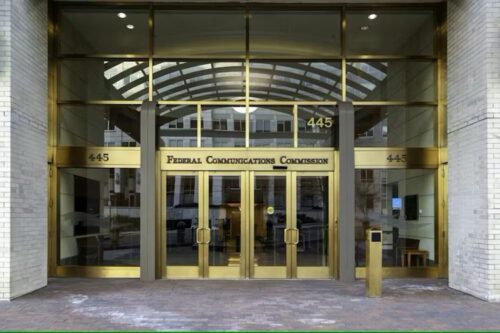
1.9.25 – SIW
A recent U.S. appellate court decision blocking the Biden administration’s attempt to restore net neutrality rules is raising concerns among stakeholders in the security alarm industry. The January 2 ruling is the latest chapter in a years-long debate over whether internet service providers (ISPs) should be prohibited from prioritizing certain types of internet traffic.
The U.S. Court of Appeals for the Sixth Circuit in Cincinnati ruled that the FCC lacks the authority to reinstate rules that prevent broadband providers from throttling or restricting access to online content. The decision follows a broader trend of judicial challenges to regulatory authority, leaving industries that depend on equitable internet practices grappling with the potential fallout.
Alarm Industry Concerns
The alarm industry relies heavily on stable, unrestricted internet traffic to ensure the seamless transmission of critical alarm data, including video feeds. Without net neutrality protections, ISPs could prioritize certain traffic at the expense of others, potentially jeopardizing the reliability of alarm systems during emergencies.
The Alarm Industry Communications Committee (AICC) — a group within The Monitoring Association (TMA) that includes representatives from TMA, the Electronic Security Association (ESA), the Security Industry Association (SIA), and leading alarm companies — has long advocated for net neutrality protections. The committee argues that alarm providers face a unique challenge: they compete with some broadband ISPs in offering security services while simultaneously depending on these carriers for data transmission.
Industry veteran Lou Fiore, who chaired the AICC from 1982 to 2022, emphasized the risks posed by the absence of net neutrality rules. “The decision to reverse net neutrality is not unexpected after a prior stay — not to say that it’s good,” Fiore said. “Absent Congressional relief for ISP customers like the alarm industry, a policy of no guardrails for ISP customer protection will likely hurt the American public via diminished competition in certain markets.”
Broader Implications
In a recent NPR interview, Barbara van Schewick, a Stanford University law professor and long-time advocate for net neutrality, warned that ISPs now have the power to “pick winners and losers” in the digital marketplace. She explained that ISPs could throttle or prioritize internet traffic based on financial arrangements or their business interests. “We risk losing an internet that is open, fair, and accessible for everyone,” van Schewick said.
These concerns resonate deeply within the alarm industry. Fiore highlighted the potential for ISPs to prioritize their own services over those provided by competitors, such as alarm companies, thereby compromising fair competition. He underscored the importance of net neutrality for ensuring the “fair, reliable and accurate transmission of alarm data.”
The ruling’s financial implications are another pressing concern. Van Schewick noted that smaller businesses may struggle if ISPs begin charging fees for prioritized service. These costs could disproportionately affect alarm providers, many of which are small- to mid-sized businesses and ultimately lead to higher prices for consumers.
Fiore echoed these concerns, warning that increased costs could ripple through the industry, potentially limiting access to essential security services.
“Absent congressional relief for ISP customers like the alarm industry, a policy of no guardrails for ISP customer protection will likely hurt the American public via diminished competition in certain markets,” he said. “The alarm industry has unique protections from Congress and the industry merits increased protections given the current developments.”
Net neutrality was introduced by the FCC during the Obama administration in 2015 but was repealed in 2017 under then-President Donald Trump.
However, last year, the FCC moved to effectively reinstate net neutrality by reclassifying broadband as a public utility, similar to water and electricity, to regulate internet access. The classification subjects such services to government oversight under the Communications Act of 1934.
Through this action, the FCC sought to hold ISPs accountable for service disruptions, improve network security, maintain fast internet speeds and strengthen consumer data protections.
Brendan Carr, the newly appointed FCC Chair under President-elect Trump, praised the appellate court’s ruling to overturn what he called “Biden’s Internet power grab” and stated that he would continue to work toward reversing the Biden administration’s regulations.
Meanwhile, current FCC Chair Jessica Rosenworcel called on Congress to act following the court’s decision.
“Consumers across the country have made it clear they want an internet that is fast, open, and fair,” Rosenworcel said in a statement. “This decision highlights the need for Congress to take action, embrace net neutrality, and codify open internet principles into federal law.”

About the Author
Rodney Bosch | Editor-in-Chief/SecurityInfoWatch.com
Rodney Bosch is the Editor-in-Chief of SecurityInfoWatch.com. He has covered the security industry since 2006 for several major security publications. Reach him at rbosch@securityinfowatch.com.
